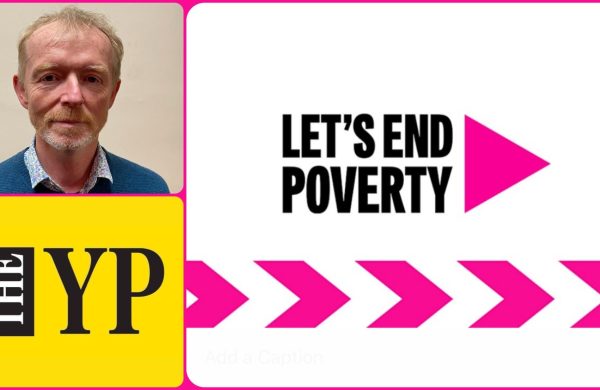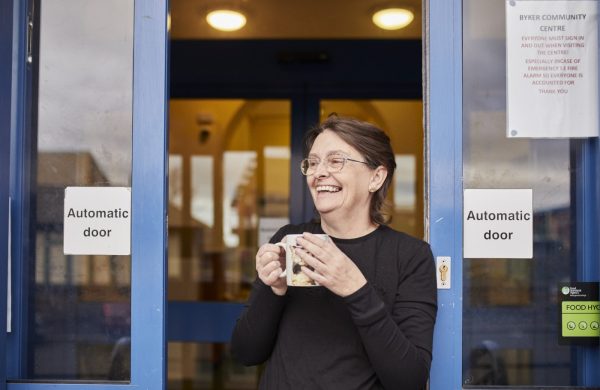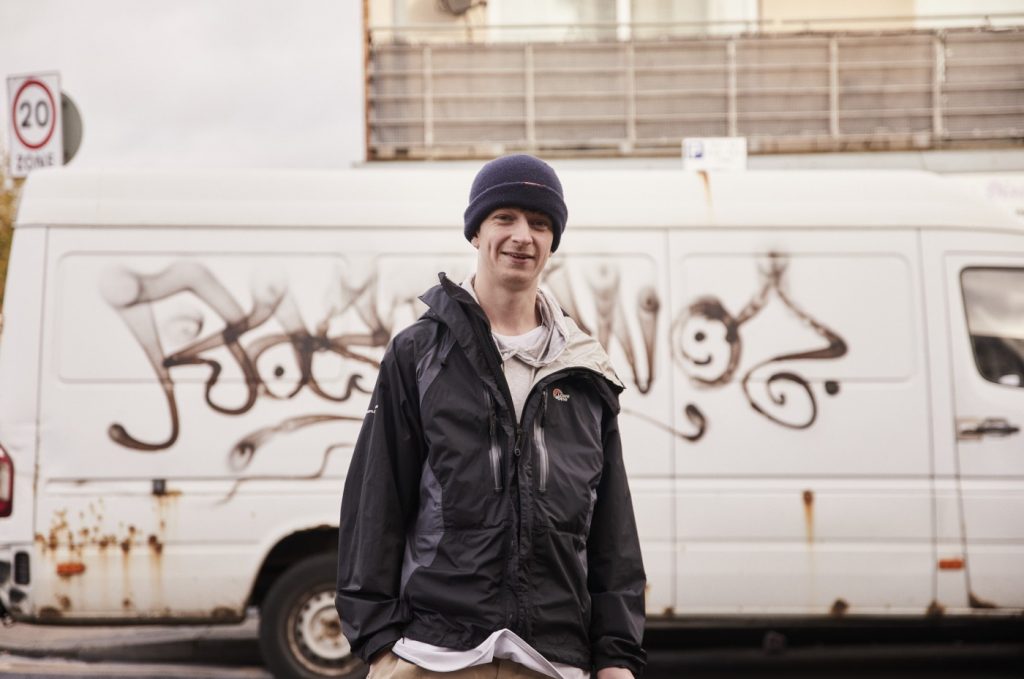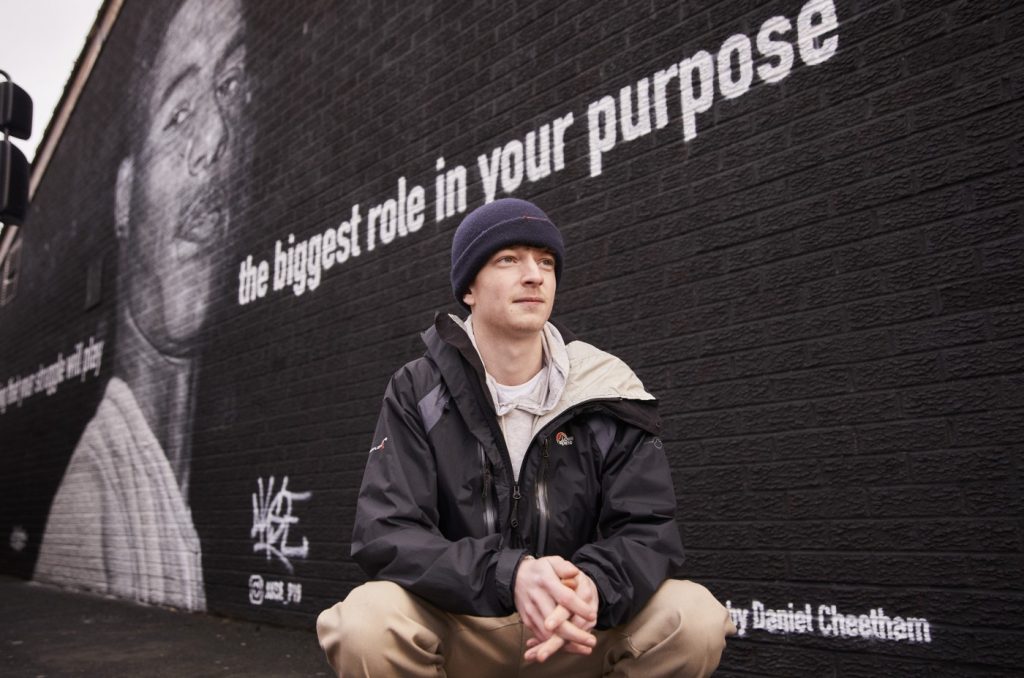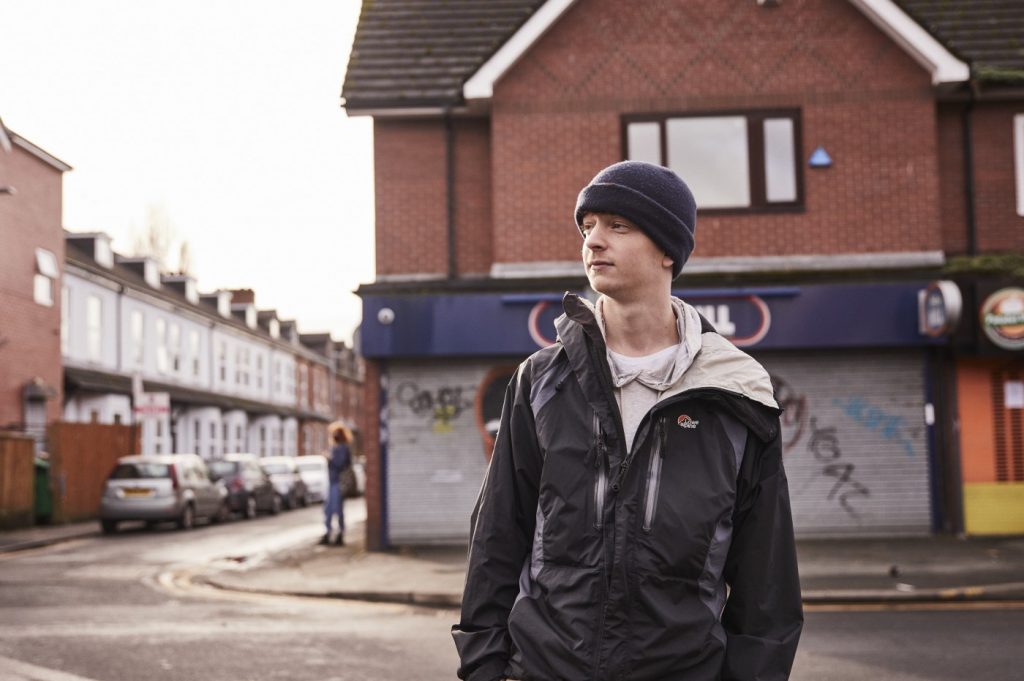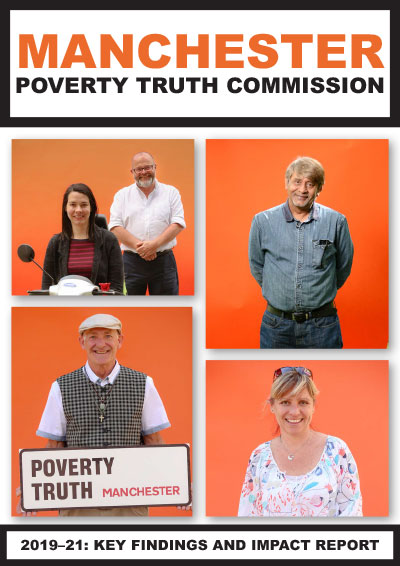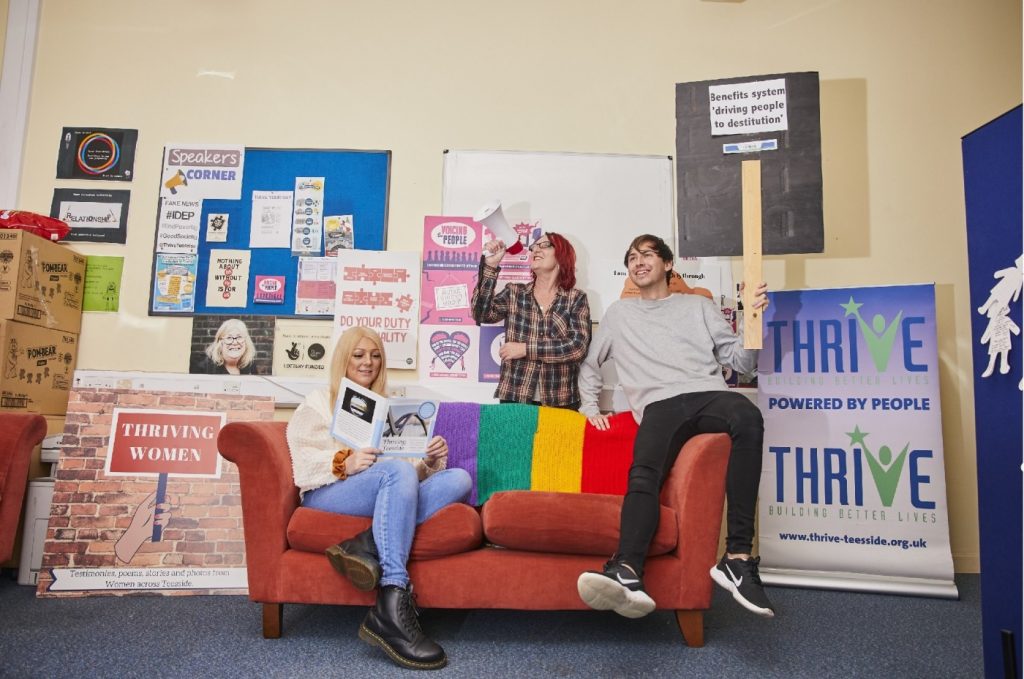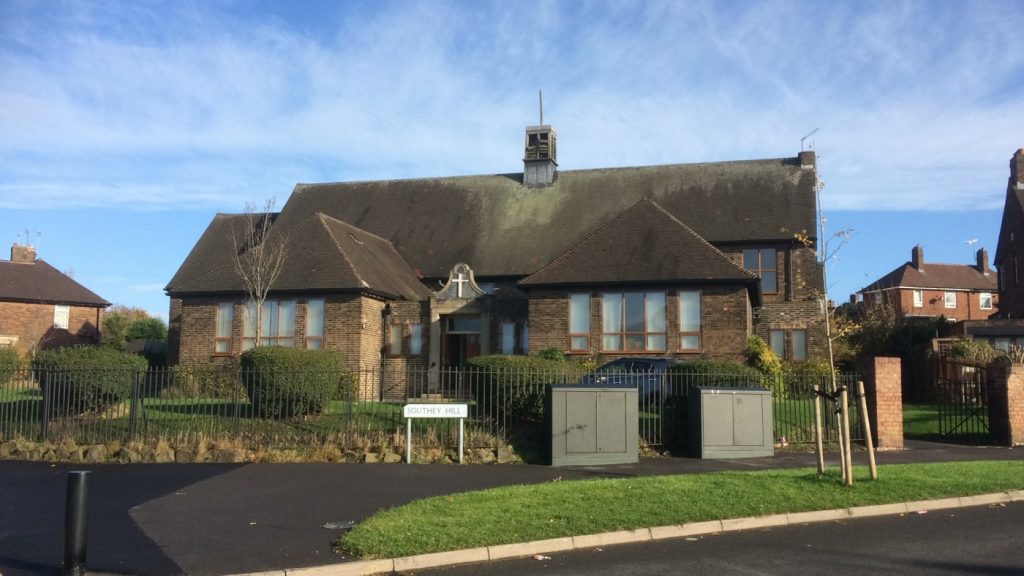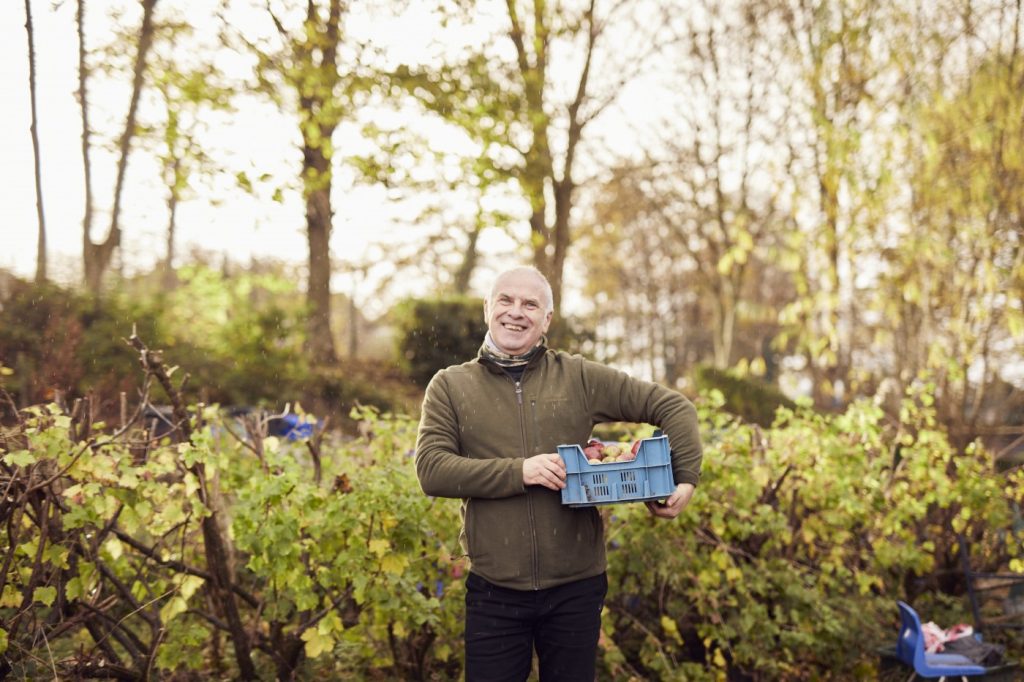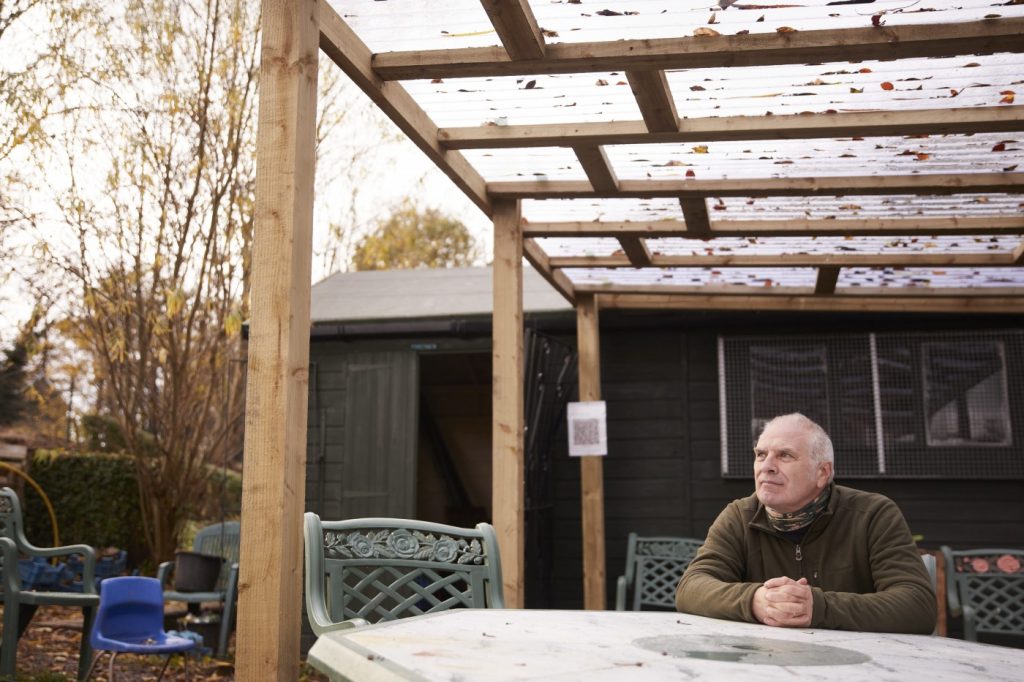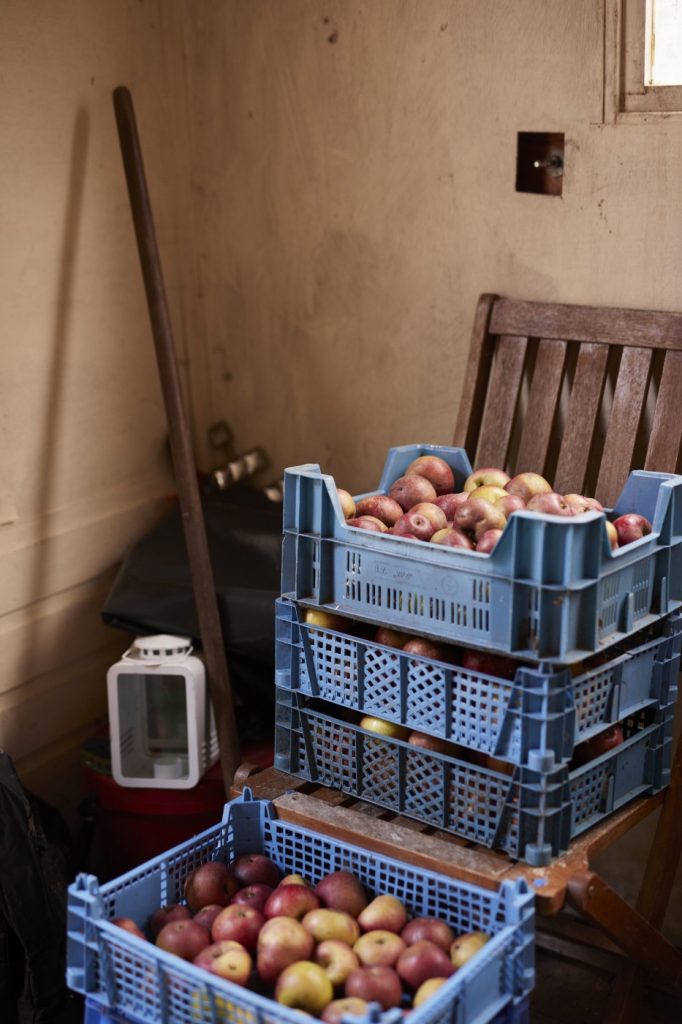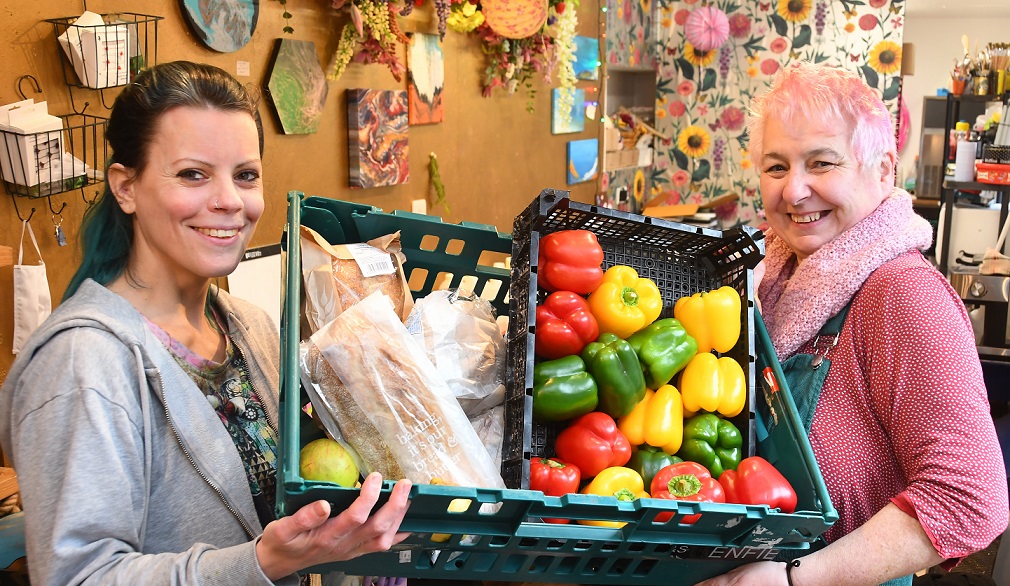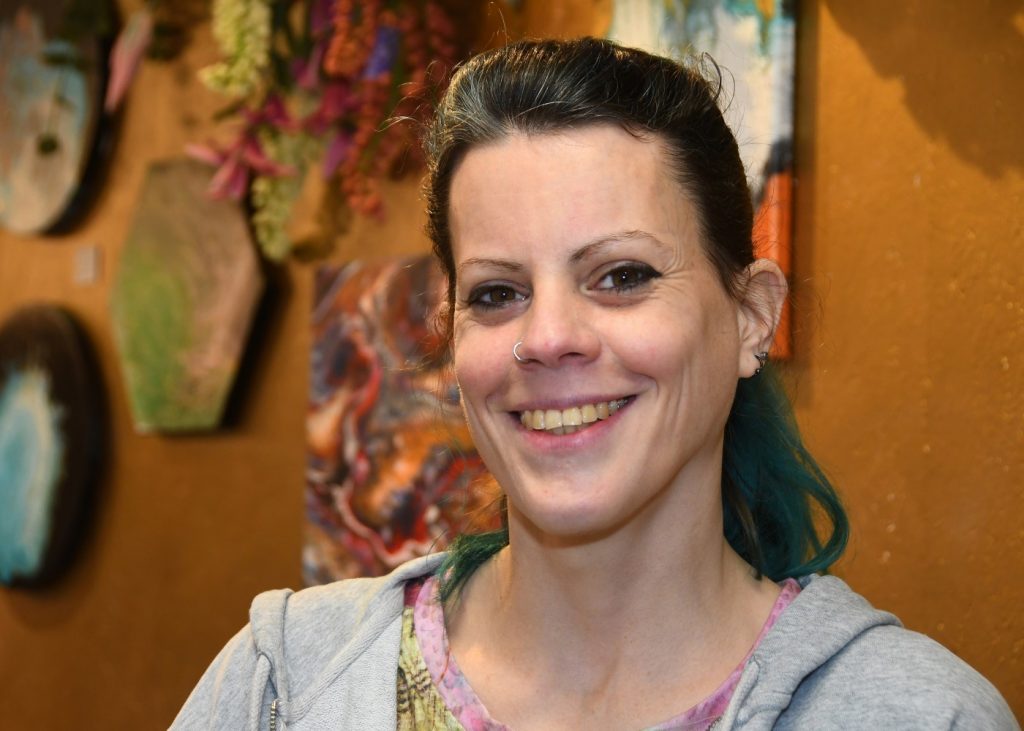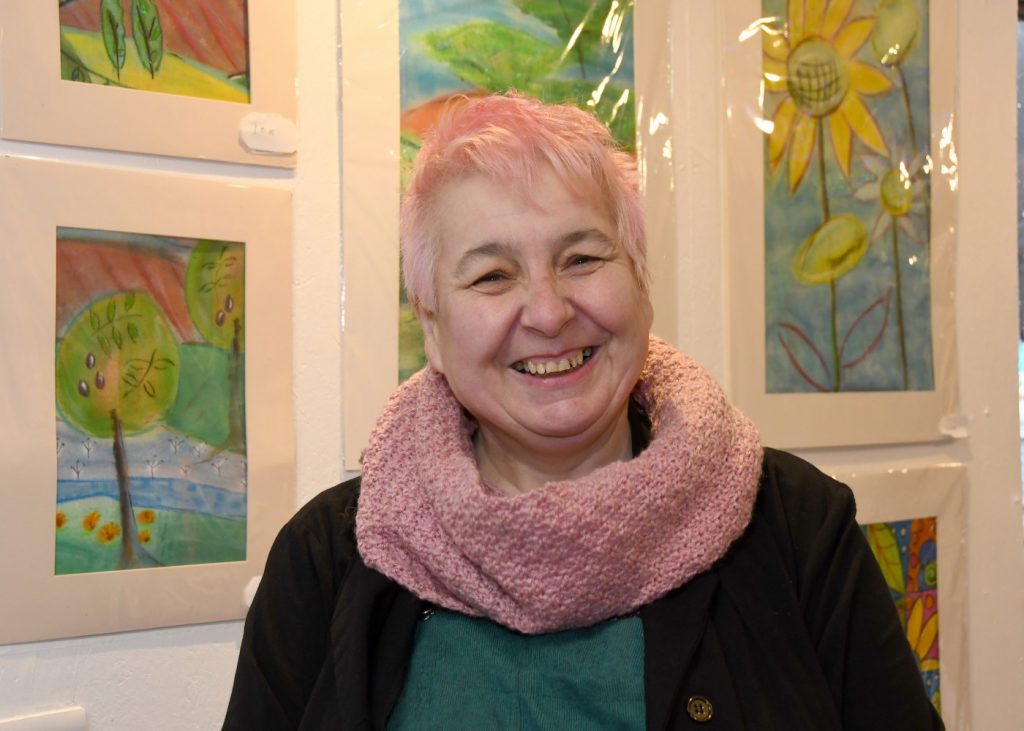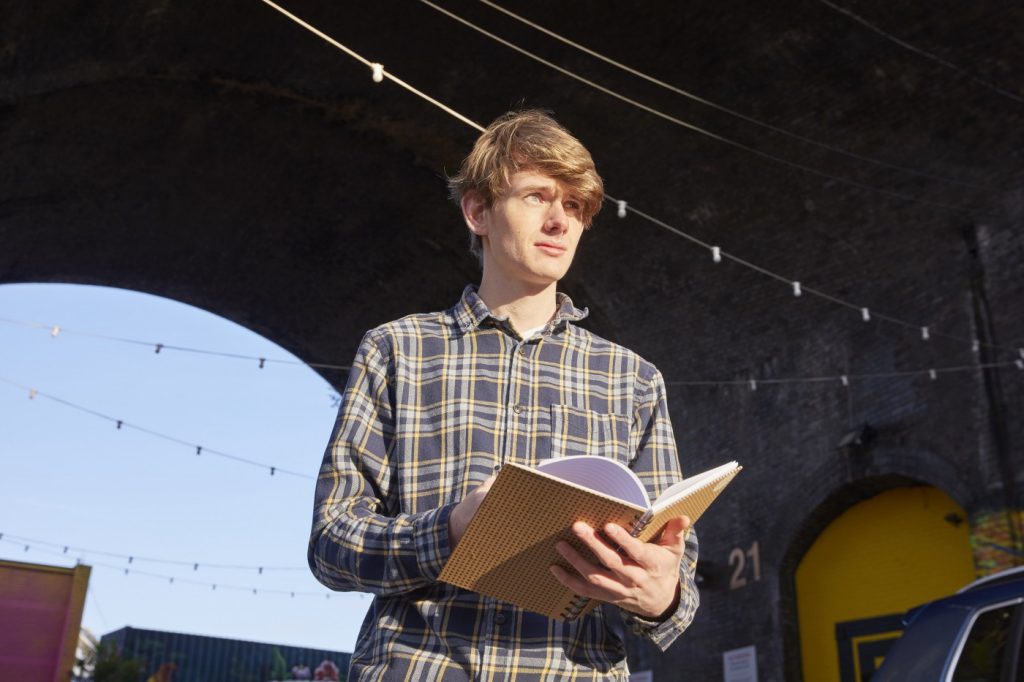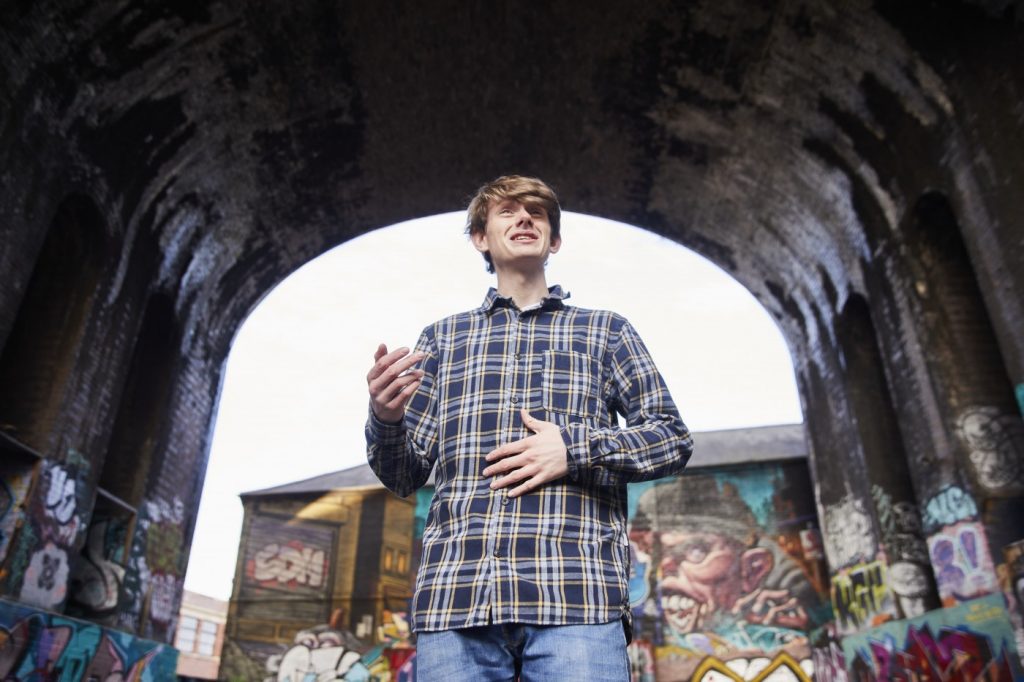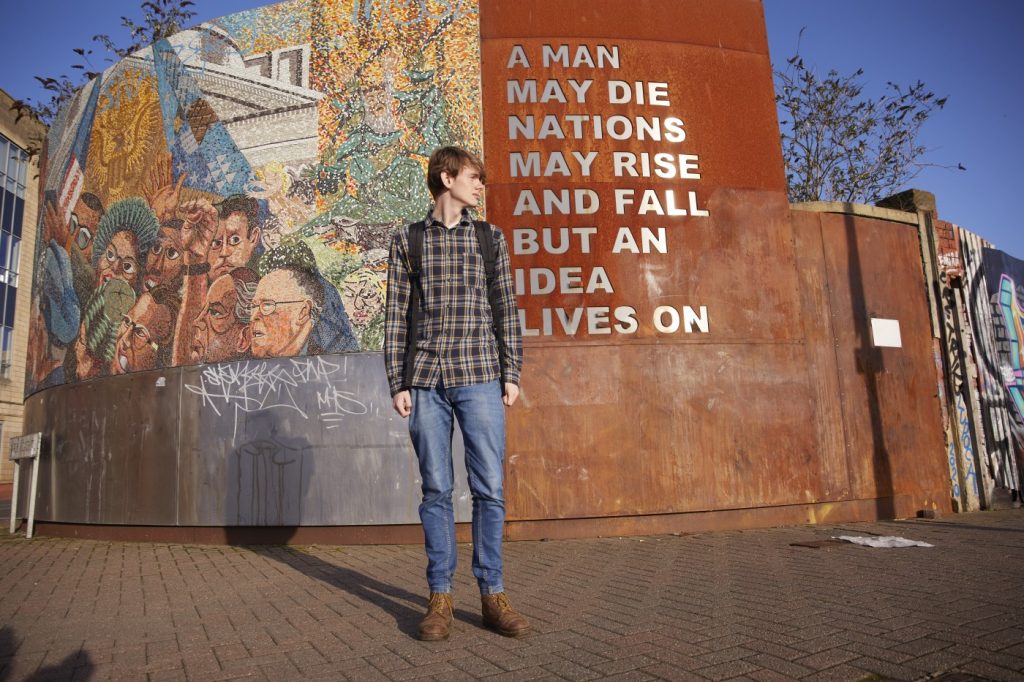12 stories of hope for 2022 – and immediate actions you can take
The 2022 Dignity, Agency, Power photo calendar is packed with inspiring and uplifting people helping to loosen poverty's grip.
Copies are being sent to Church Action on Poverty’s supporters. If you’re not on our mailing list and would like to order copies, email us.
Here’s is a preview, showing the 12 featured stories. For each one, we also suggest a simple immediate step you can take, to help propel the movement to end poverty.
1. Meet Jayne & Shaun
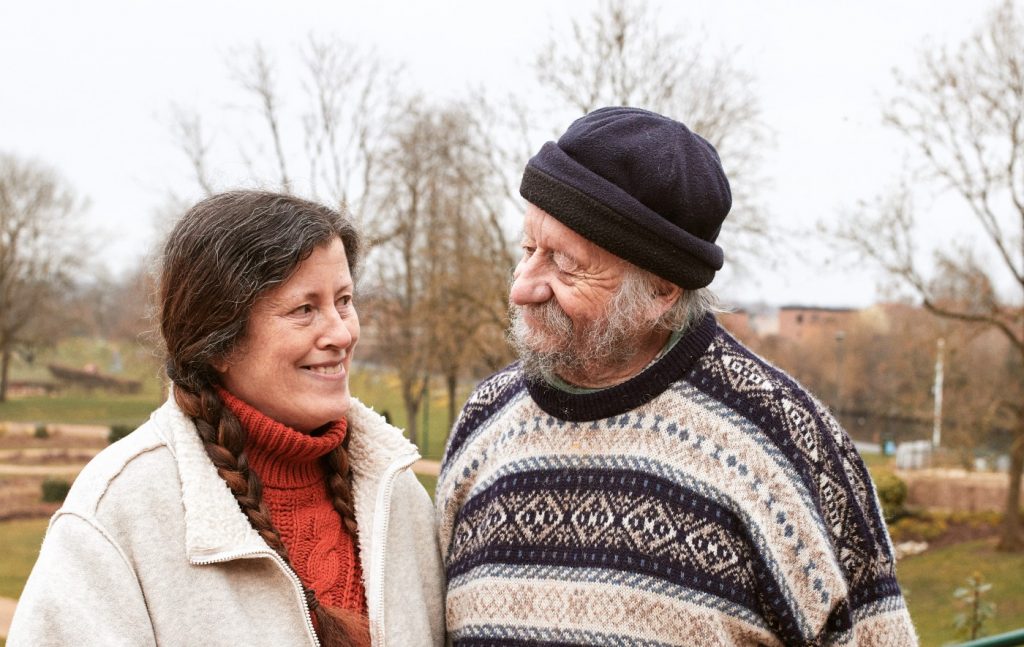
Jayne Gosnall and Shaun Kelly have inspired many others by
sharing their stories, poetry and creativity, including in the Same Boat? anthology and through the Self-Reliant Group movement.
Jayne was also part of Salford Poverty Truth Commission and has spoken up in the media about poverty.
She says: “One of the best things that has happened to me is getting involved in projects through Church Action on Poverty. It’s a great organisation and what I like is that they always try to get normal voices in there, which is really good.
“One of the things that happens with people in poverty is that their confidence and self-esteem are affected so it’s really important that people are encouraged to use their voice, even if they do not feel they have got one.”
- Photo by Madeleine Penfold
2. All aboard for tax justice
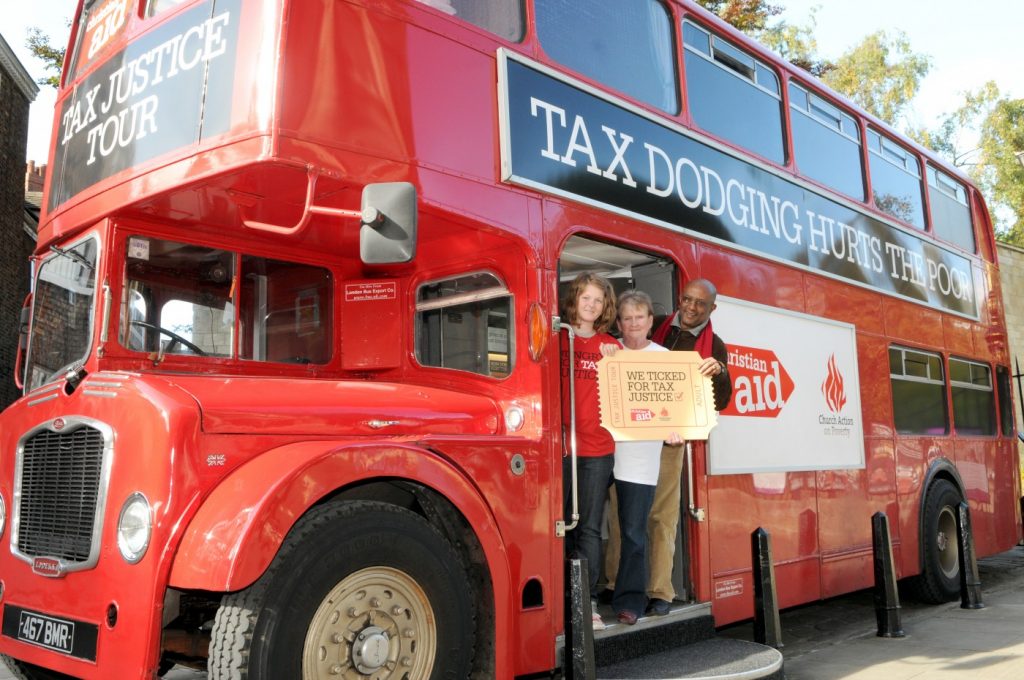
In 2012, Church Action on Poverty and Christian Aid took a double-decker Tax Justice Bus around the UK on a 53-day tour,
visiting 109 towns and cities.
Campaigners spoke to politicians, campaign groups, church leaders and the media, inspiring people to speak up and mobilising support.
This campaign and others paid off in summer 2021, when the G7 leaders agreed that multinational companies must pay at least 15% tax on profits in countries where they operate – a big step towards tax justice.
- Photo by The Press newspaper in York.
3. A love letter to brave souls
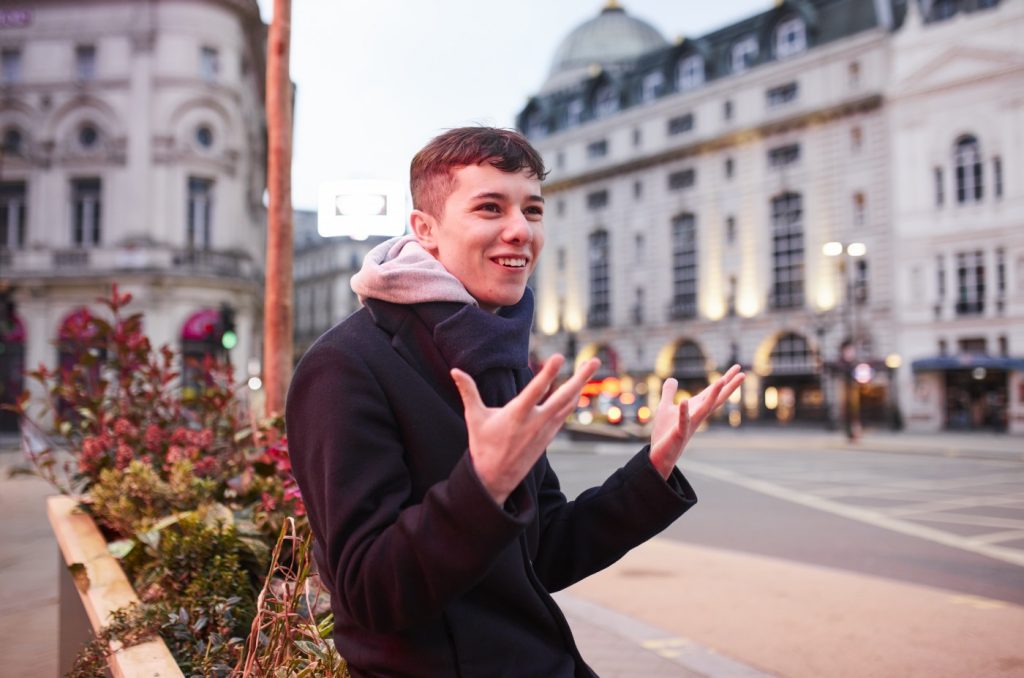
To challenge poverty, it’s vital that people with direct experience are heard.
Ellis Howard, an actor-writer from Liverpool, ran workshops
with Church Action on Poverty in 2020, showing how people can
use their lived experiences and transform them into activism, using stories of struggle, hunger or poverty to build power and shape the future.
Ellis’ contribution to our Same Boat? poetry anthology on
poverty and lockdown was “a love letter to those brave souls who history continually tries to undermine, but we don’t let it.”
He says: “For so long these stories, these experiences, these lives have been completely undocumented. They haven’t been celebrated in a glorious nuanced way.”
- Photo by Madeleine Penfold
4. A bold vision to end hunger
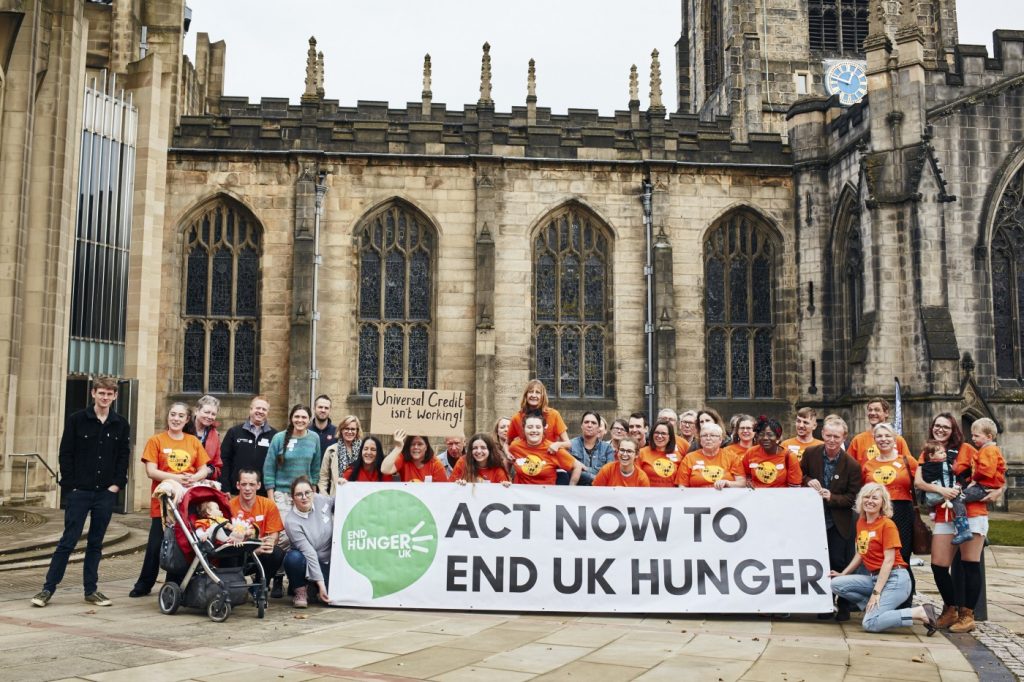
The End Hunger UK campaign, coordinated by Church Action
on Poverty from 2016 to 2020, brought together faith groups,
campaigners and charities, united by a bold vision of a country
where everyone has access to good food.
One of the brightest events was when the Food Glorious Food choir, formed in a Sheffield food bank, sang at the city’s Cathedral as part of a day of action.
There is a long way to go, but campaigning has helped ensure that the Government now properly monitors food poverty, and is funding a programme of food and activities which goes some way to tackling the growing problem of holiday hunger.
- Photo by Alexandra Wallace
5. Food with dignity
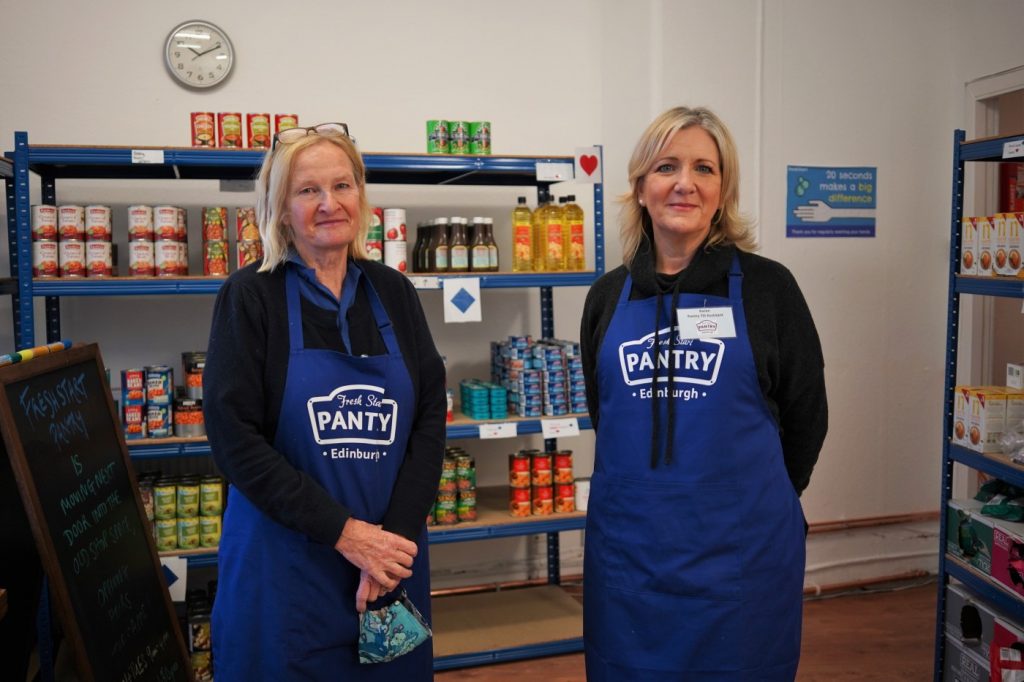
The Your Local Pantry network safeguards food access without compromising on dignity.
The number of Pantries supported by Church Action on Poverty
has more than trebled in the past two years. Over 11,000 households are now members.
Pantries reduce costs, strengthen community, combat isolation and improve health and wellbeing. They are bustling triumphs of community, and can be the cornerstone for future progress.
Pictured are volunteers Christine Hoy and Karen Paterson, at the Fresh Start Pantry in Edinburgh.
- Photo by Christopher Cook.
6. Tackling Debt on our Doorstep
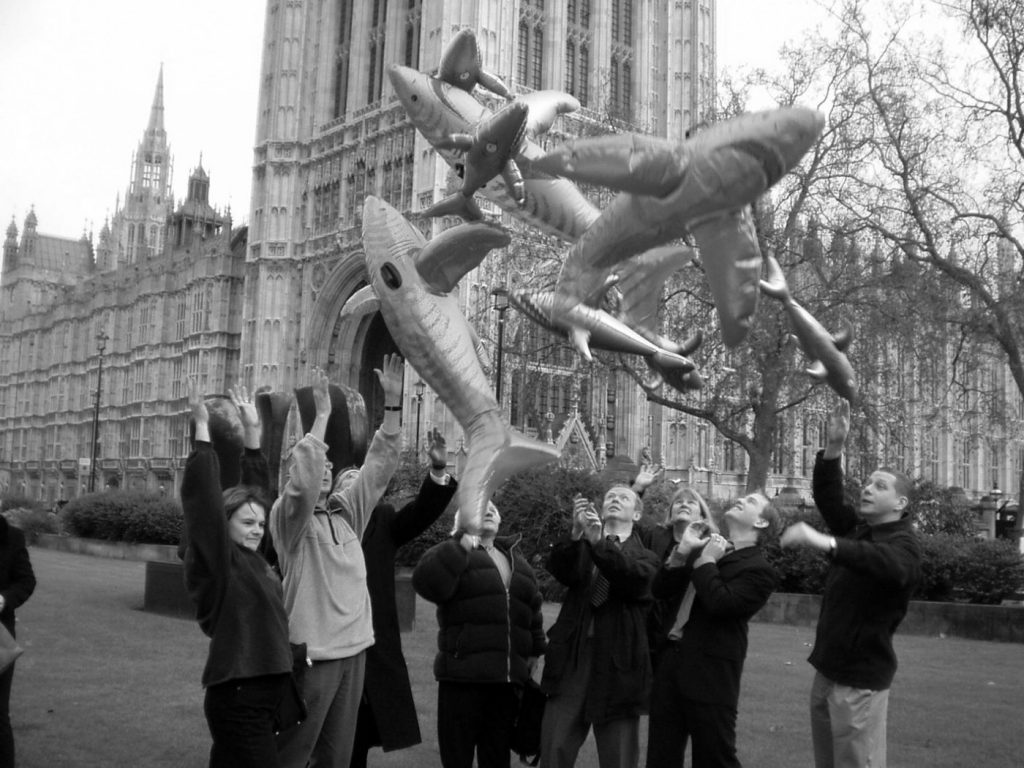
For many years, ‘doorstep lenders’ and ‘rent-to-own’ companies
were a scourge on poor communities, charging exorbitant rates
to people who had nowhere else to turn.
We knew it would take a broad effort to bring change, so the Debt On Our Doorstep campaign brought together churches, credit unions, experts on debt and credit, and most importantly, people with personal experience of debt and high-cost lending.
This picture shows our ‘loan sharks’ demonstration outside Parliament. Campaigning paid off… Government regulators finally took action, introducing a cap on the cost of credit and other regulations which ultimately led to Wonga, Provident Financial and other lenders having to cease their exploitative practices.
- Photo from Church Action on Poverty archives.
7. July
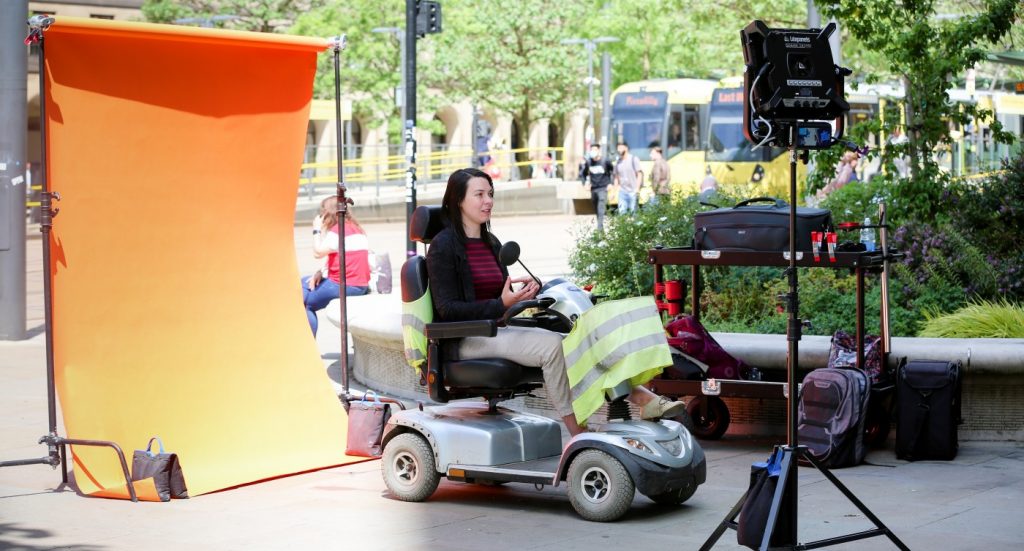
Stef Benstead knew first-hand how badly the UK was treating disabled people, and wasn’t willing to stay silent. Her book, Second Class Citizens, charted the way that disabled people’s rights had been breached and set out a vision for a better way.
Stef, a Church Action on Poverty trustee, was also part of Manchester Poverty Truth Commission, which has brought people in poverty and decision-makers together, to find solutions through their shared wisdom.
8. August
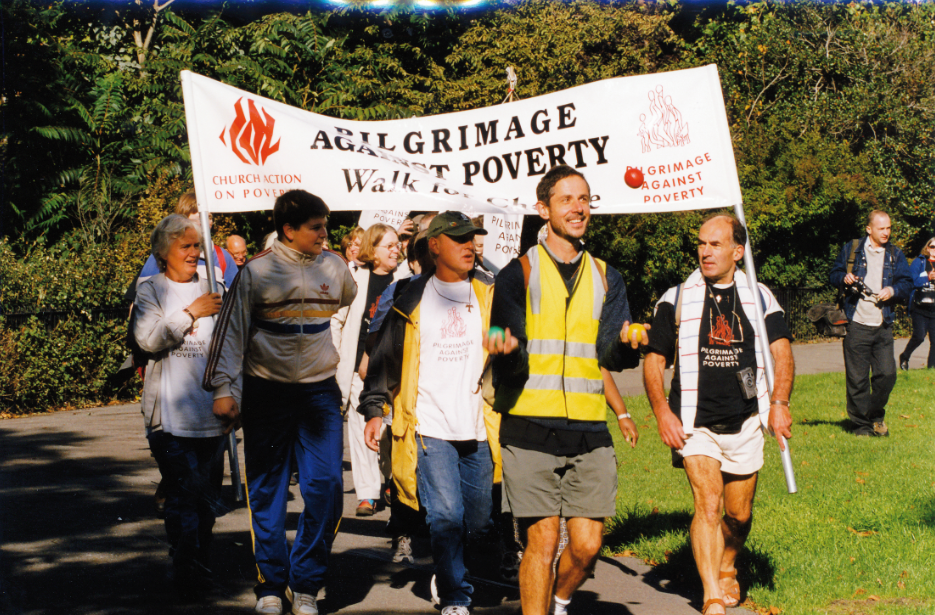
In August 1999, The Pilgrimage Against Poverty began on the Scottish island of Iona. Nine weeks later, with hundreds of walkers having taken part, it reached Westminster, where some of the Pilgrims met the Chancellor, Gordon Brown, setting out proposals to tackle poverty.
The Pilgrimage, organised by Church Action on Poverty, shone a light on poverty in the UK and pressed for change, mobilising and energising supporters as never before.
9. September
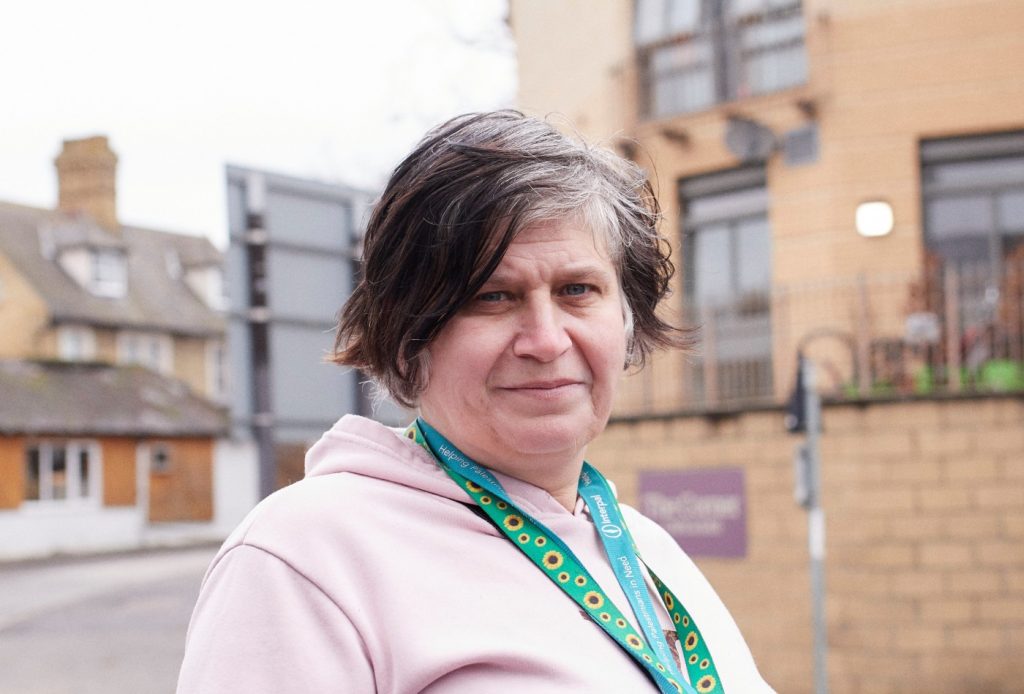
Monica Gregory, who works with homeless people in Oxford, has been speaking out as part of Church Action on Poverty and Sustain’s Food Power programme, and also took part in a Food Experiences panel work to understand food insecurity in the context of covid.
Monica found confidence through the work to speak up about poverty in Oxford, which is often hidden.
She says: “It doesn’t matter what people think of you, you know, as long as you believe in yourself and you love yourself. Just look in the mirror and tell yourself that you know that you love yourself and that you are worthy. Don’t ever give up.”
10. October
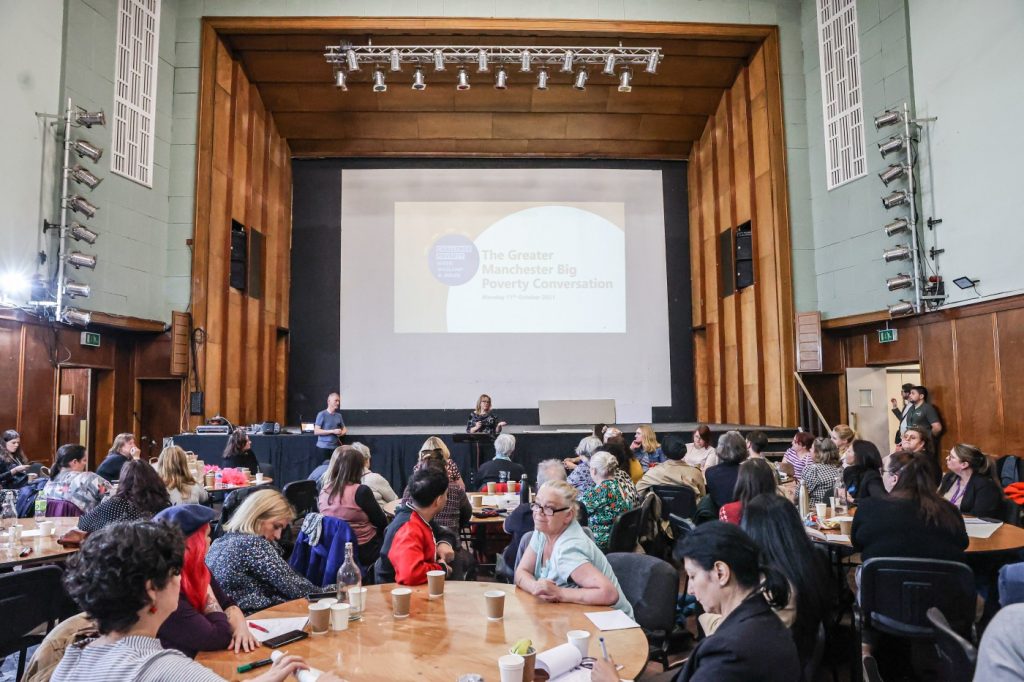
All over the UK, there are people whose experience of poverty has given them powerful insights into what could make a difference. Challenge Poverty Week each October amplifies voices that are too often drowned out and focuses on solutions.
If we harness our collective kindness, determination and wisdom, we can build the compassionate and just society that we all crave.
You can sign up below to find out what’s happening in 2022, or to take part. challengepoverty.net in Scotland or challengepoverty.co.uk in England and Wales.
11. November
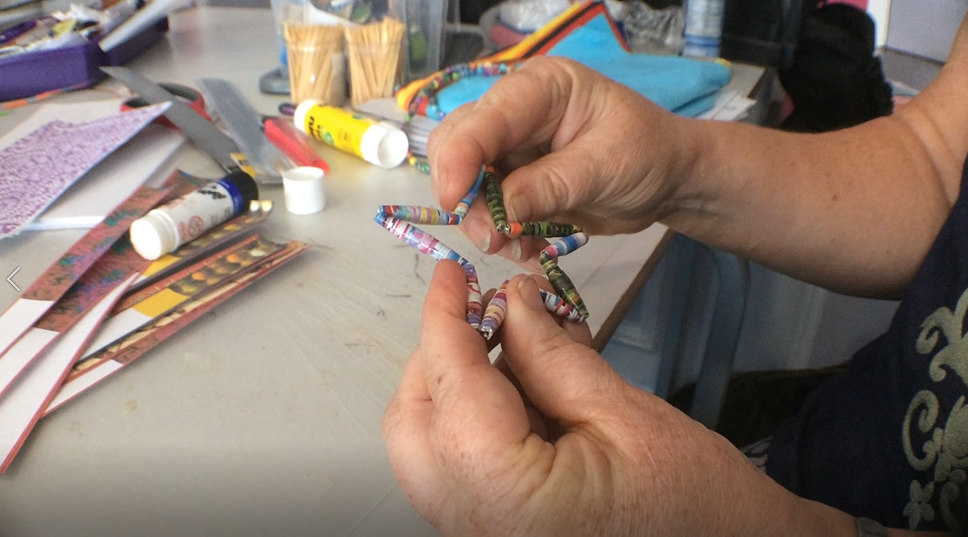
Great things can happen when people come together. Self-Reliant Groups are proof of that. Each group is run by and for its members, creating new freedom in their lives and alleviating many aspects of poverty such as marginalisation and a lack of power. Groups meet regularly, save together, make collective decisions and learn new skills together, with the potential to become a business.
Church Action on Poverty leads the growth of groups in the North West of England.
12. December
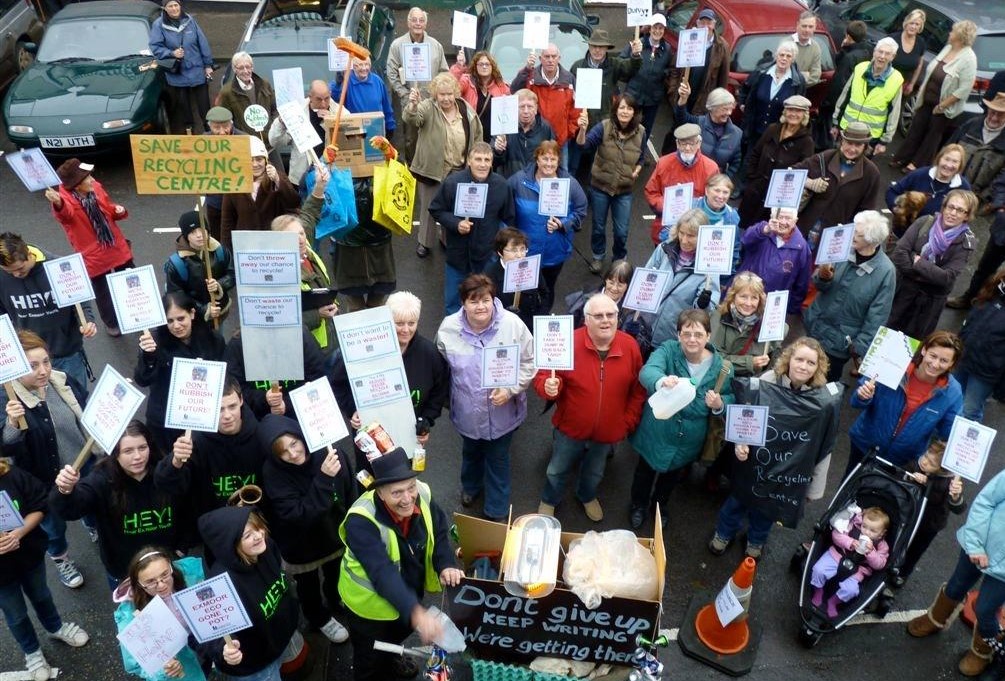
Local people know best what their community needs, so it is
right that they should decide how money is spent in their town or city.
That idea ought not to sound radical, but in the early 2000s
it was. The concept of participatory budgeting began in Brazil in the 1990s,
and when a group from Salford visited ten years later, they brought the idea
back to the UK, involving thousands of people in more than 200 areas.
Phil Teece, who led the work for Church Action on Poverty,
says: “Citizens are as capable, or more capable, of making the decisions that
will affect them most. That’s a very powerful message. It’s not about
alleviating poverty per se, but it’s transferring power and giving people the
confidence to engage. It makes a big difference to people who felt they had no
power whatsoever.”

